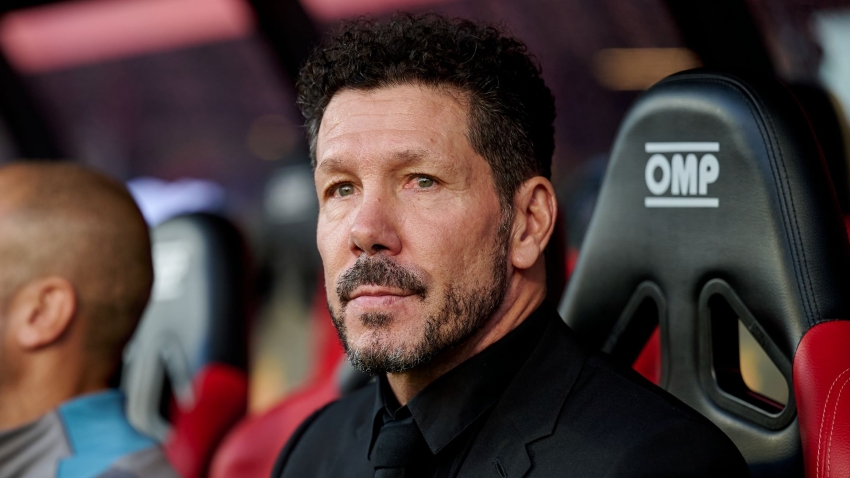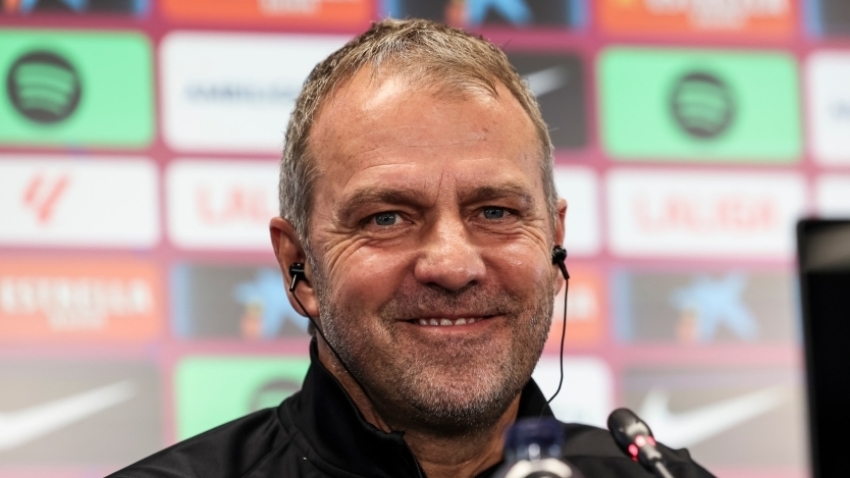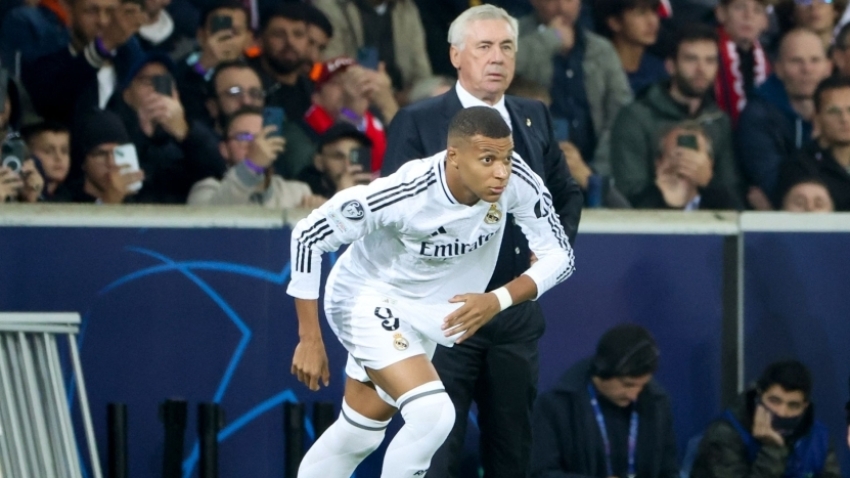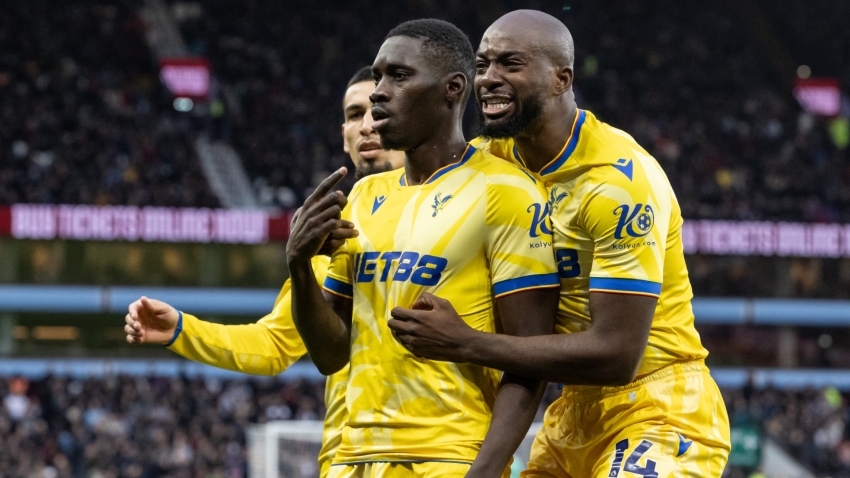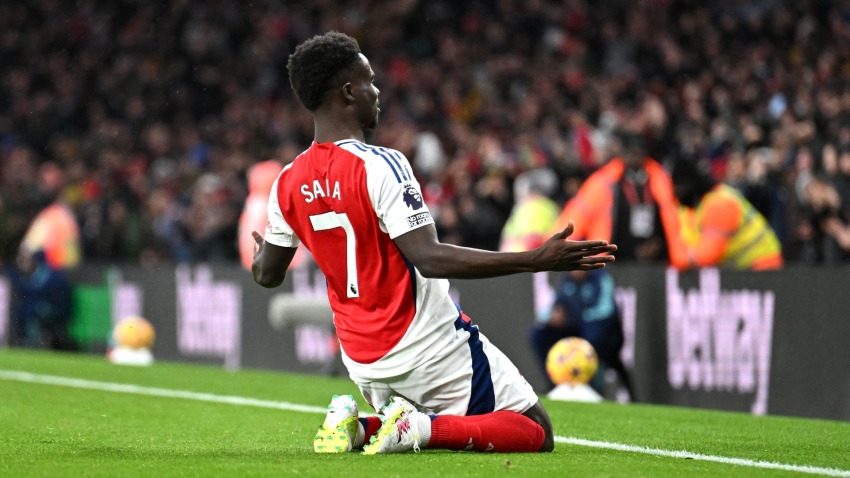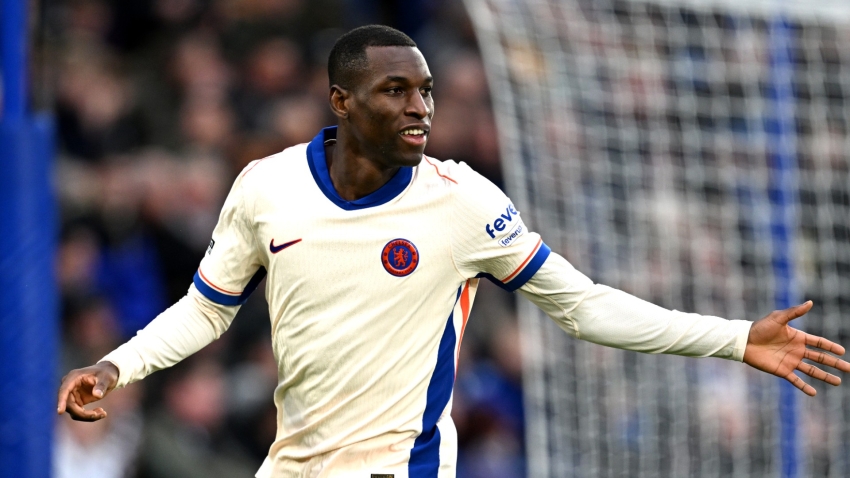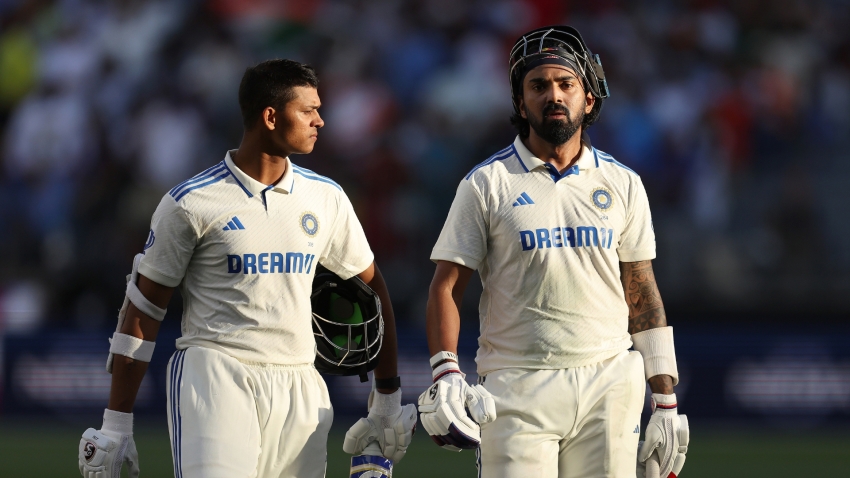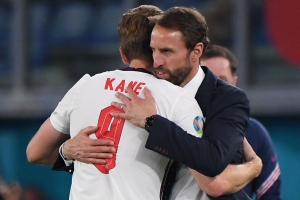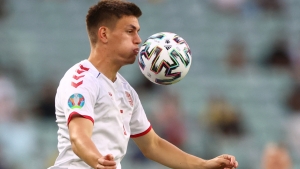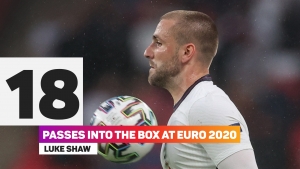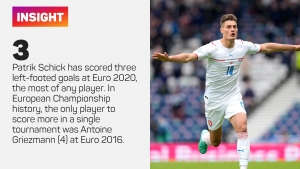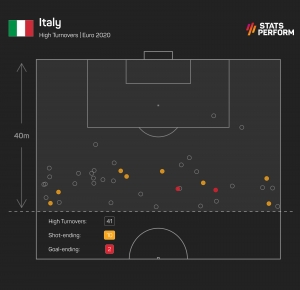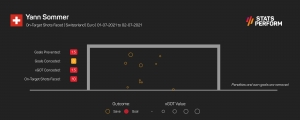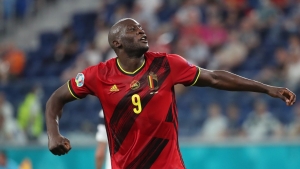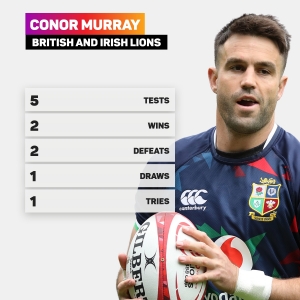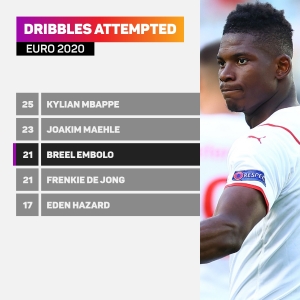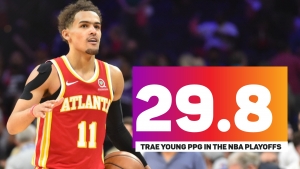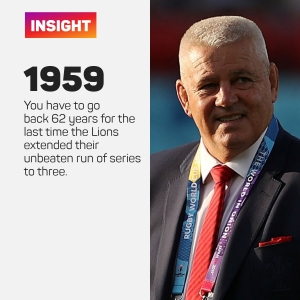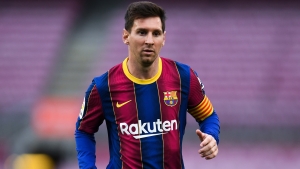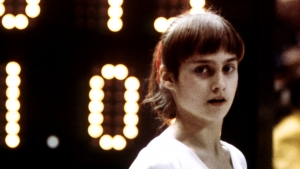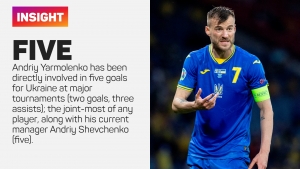Gareth Southgate has a reputation for matter-of-fact sincerity in news conferences but it felt like even he was laying it on a little thick last October.
Luke Shaw was fit and a fixture in Manchester United's first team but had ticked past two years without an England call-up.
For Nations League matches against Belgium and Denmark and a friendly versus Wales, Ben Chilwell was unavailable. Southgate selected and split left wing-back duties between Kieran Trippier, Ainsley Maitland-Niles and Bukayo Saka – none of whom are specialists in the position.
"The door is certainly open," he replied when asked about Shaw's seemingly dwindling prospects.
"I don't think we've ever closed the door on any player - and we certainly wouldn't on Luke.
"He's more than capable of being the best left-back in the country in my opinion."
A scroll through some of the social media responses to that assertion suggests not too many agreed.
After his starring role in the stirring 2-0 Euro 2020 win over Germany, it is hard to argue against the notion that Shaw – despite everything he has endured since becoming the most expensive teenager in world football back in June 2014 – is England's premier left-sided defender.
Dark days at Old Trafford
"If I'd flown back, I would probably have lost my leg because of the blood clots."
It is an incredibly stark statement. A tackle by PSV's Hector Moreno during a September 2015 Champions League match left Shaw with a horrific double leg fracture that threatened to become worse than that gruesome description.
As Shaw recuperated from surgery at St Anna Ziekenhuis hospital in Geldrop and United made plans to fly him home, doctors discovered two blood clots and scheduled an emergency operation.
"I've got two scars down the side of my leg where they had to cut me open and pull them out," said the former Southampton youngster, when discussing his ordeal while on England duty three years later.
"I'd be lying if I said I hadn't sometimes thought about stopping playing football [during rehabilitation]. It went on for a long period, doing the same things every day.
"I couldn’t do anything else because of the break. It was frustrating but I came out the other side."
When he returned to action the following season, Shaw had another draining, sapping problem - Jose Mourinho was the Manchester United manager.
After starting the season as first choice, Mourinho singled out Shaw for strong criticism after a 3-1 defeat at Watford.
Things came to an unsavoury head in April 2017, when the former Chelsea boss first questioned "the way he trains, the way he commits, the focus, the ambition" ahead of a game with Everton.
Then, after Shaw came off the bench and impressed to help United salvage a 1-1 draw, Mourinho claimed: "He had a good performance but it was his body with my brain. He was in front of me and I was making every decision for him."
The relationship remained strained, even as Shaw was handed a five-year contract extension in October 2018 - two months before Mourinho was sacked.
"There is no hiding that we didn't get on," Shaw told reporters last week, after Mourinho – now working as a pundit after his Tottenham tenure went the same way as his United reign – criticised his "dramatically bad" corner taking during England's 1-0 group stage win over the Czech Republic.
"I think he was a brilliant manager but, you know, the past is the past. It is time to move on. I am trying to move on but, obviously, he can't. He continuously talks about me, which I find quite strange."
The long road to Wembley
The raucous din as Shaw drove forward from midfield and fed Jack Grealish on Tuesday meant he would have been unlikely to hear instructions from the touchline or anywhere else inside Wembley. Funnily enough, his football brain was in good order.
Grealish crossed and Harry Kane stooped to head England to a 2-0 win over Germany, their first knockout stage victory over any team with a world title to their name since 1966.
Southgate's Euro 2020 side have worn their pragmatism proudly. Despite an enviable array of attacking talent – Shaw described it as "absolute madness, so frightening" this week - they go forward with cautious calculation and are yet to concede a goal.
As well as being part of that watertight defensive unit, Shaw has proved invaluable to an attacking approach that values quality over quantity. His five chances created, with four from open play, are the most of any England player, as are his 18 passes into the opposition box. An expected assists (xA) figure of 1.08 also shows him to be cumulatively laying on a better quality of chances than any of his team-mates.
Those attacking gifts were a large part of what persuaded United to pay Southampton £27million for his services, with Shaw following Wayne Bridge and Gareth Bale off the St Mary's production line as a left-back with game-changing qualities.
Initially, he appeared inhibited at Old Trafford, as then-manager Louis van Gaal questioned his fitness in an early taste of what was to come under Mourinho. Then the injury nightmare began.
It has been a long road back, but in 2020-21, United got their most sustained look at the player they hoped they were buying six years earlier.
Shaw's 47 appearances were his most in a single campaign and culminated in Europa League final heartache against Villarreal. It was his first United appearance in a major final, representing a personal triumph over a catalogue of fitness problems amid penalty shoot-out woe.
He claimed six assists in all competitions, the most of his career, while 90 chances created was more than double his previous best of 41 in 2018-19.
Shaw averaged 6.88 passes into the opposition box per 90 minutes, having never averaged above 3.5 before, despite some of his previous sample sizes being far smaller due to injury interrupted campaigns.
Southgate's faith repaid
If those performances made Shaw impossible to ignore last season, he was easily forgotten in March 2017.
Injuries and Mourinho's ire had combined to mean a solitary Premier League start in a five-month period, but he received a call-up from the recently installed England manager to take on Lithuania and Germany.
"Generally, we've tried to pick players who are playing regularly, and one or two have missed out because of that. Luke is probably the exception. He's a player we have a lot of belief in," said Southgate, his former England Under-21 boss.
"Having worked with him before we think he can be an important player for the future. Now would be a good time to give him that confidence boost."
The progress from that point has been far from linear. Shaw was absent when England reached the semi-finals of Russia 2018, indeed this is his first tournament since the 2014 World Cup, when everything felt possible for a prodigiously gifted teen.
His latest recall only came in March but, with Ukraine up in Rome on Saturday as the first in a potential three-game shot at sporting immortality, the possibilities are opening up again.
Having made his debut in March 2014, this weekend is set to mark Shaw's 14th cap. At 25, there should be plenty more to come for an easy going member of the squad, visibly a friend to everyone who fits perfectly with Southgate's team ethos.
"I remember at the [2018] World Cup seeing all these videos of the fans celebrating, going wild. And I thought: 'I want to be a part of that'," Shaw told England's YouTube channel in the aftermath of his hard-earned part in the historic win over Germany.
"I'm [feeling] brilliant, it's so good. Everything about the last day or two has been unbelievable. I've not felt this happy in a long time."






